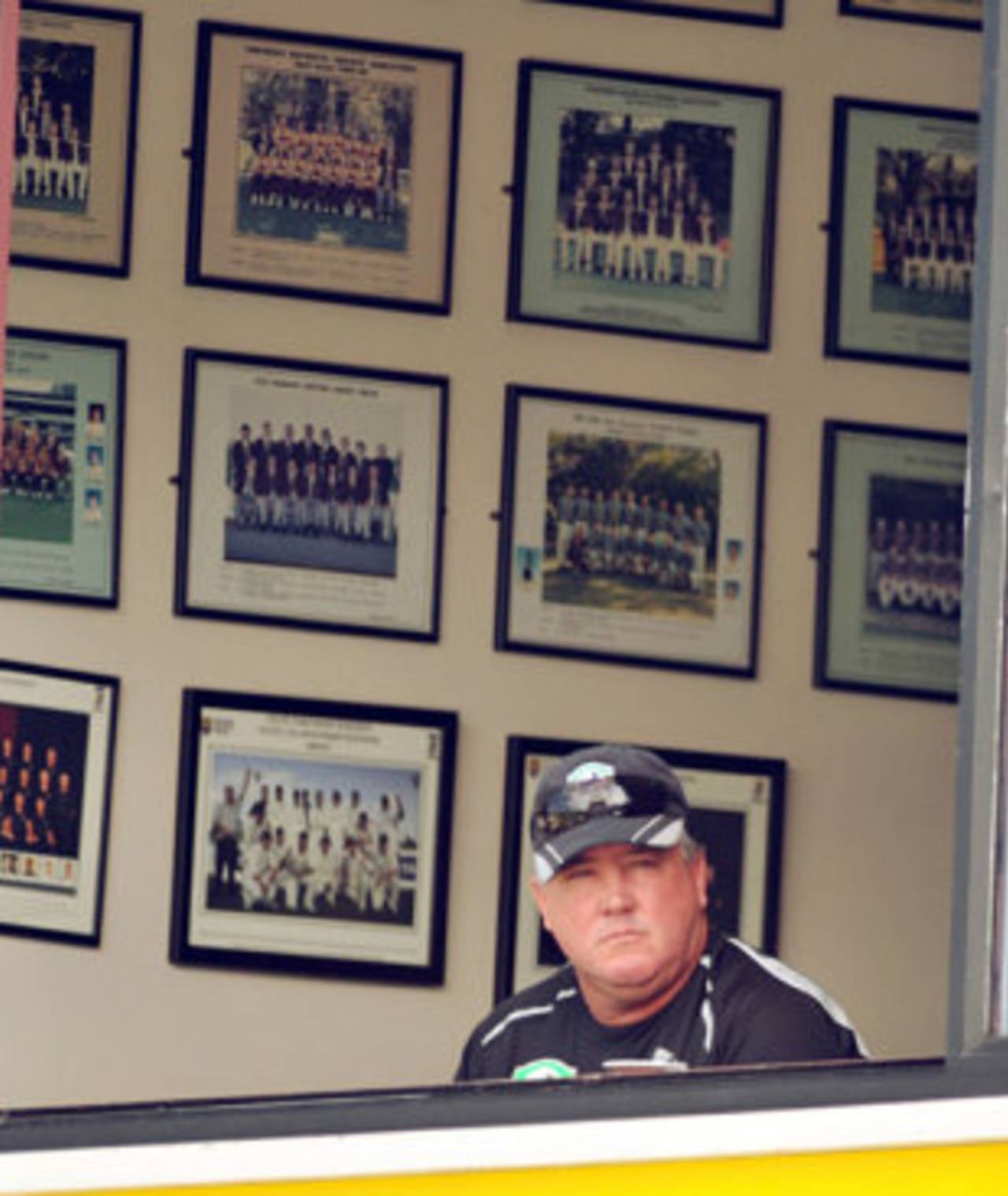Could New Zealand Cricket really have expected anything different than the situation they have now? Andy Moles was for all intents and purposes the last man standing when it came to replacing the previous coach, John Bracewell. If you're last man standing in a gunfight or a poker tournament it would suggest you have some skill or have been lucky. If you are the last man standing in the race for the New Zealand coaching job because the rest have lost interest then what does that suggest? Certainly not that you're the best man for the job.
It would appear that it took about a year of little improvement, or more so, backward movement, before NZC realised Moles was not the man for the job. The board has only half-heartedly moved to crush rumours that there has been an approach made by senior players to remove Moles from the position, and thus I tend to believe it to be the case.
If the reason is a vote of no-confidence and not a personality clash then I applaud the players. In the 1990s a personality clash between Adam Parore, Chris Cairns and the then coach Glenn Turner saw Turner removed from the position. Coaches in this country do not survive the players. John Bracewell, who was a good coach, alienated some senior players and went. Simply, the players in New Zealand hold the cards because New Zealand does not have depth; thus in an us-or-him scenario the players win because they are not dispensable.
The general cricketing public in New Zealand dislikes the thought of player power, and also would resent the players for trying to use the coach as a scapegoat for their underachievement. Public opinion was always going to go against them in this case. However, if it is true that an approach was indeed made on the basis of poor coaching performance then it shows the players care about their performance for New Zealand, that they feel they need better help and accept they are underperforming. Given that the New Zealand cricket fan is suspicious about the effect Twenty20 cricket, and the Indian Premier League in particular, is having on New Zealand cricketers' desire to play for their country, then this approach by the senior players is heartening.
The problem here is that New Zealand's top players cannot necessarily expect to get better help. New Zealand is not the richest of cricket nations or in other ways the most desirable posting for a cricket coach, and thus is unable to attract the proven high flyers of the coaching world. Hence the last-man-standing scenario of Moles' appointment. Why would you want to take New Zealand on when you can make many times what NZC can pay by doing a month's work in the Indian Premier League, or go for the high-pressure but high-paying gig of a cricket super nation?
Why would you want to take on the job of coaching New Zealand when you can make many times what NZC can pay by doing a month's work in the Indian Premier League, or go for the high-pressure but high-paying gig of a cricket super nation?
NZC must be savvy when prospecting for a coach. They are probably limited to an up-and-comer or a run-of-the-mill coach on the merry-go-round. Moles looked like he was gaining experience and was upwardly mobile. He had immediate success at Northern Districts, but that success then flattened.
Neither NZC nor the players can afford to take a punt on the next coach because a poor result will reflect badly on the administration and the players will not be given the luxury of hiding behind the coach again.
An international cricket team does not need a roll-your-sleeves-up, get-in-the-nets type coach because most players have moved beyond this. However, it is also true that the New Zealand team is not mature enough for a back-seat coordinator.
This current team actually reflects the one that got rid of Turner. Thus, a back-to-the-future approach could be the winner here. After Turner came Steve Rixon, who took a team with talent, and ego, and moulded it into a team with talent and desire. He took a young captain, Stephen Fleming, and drove him to become the most influential captain in the history of New Zealand cricket. This team is ripe for Rixon once more.
Former New Zealand opener Mark Richardson is now a television commentator and cricket columnist
